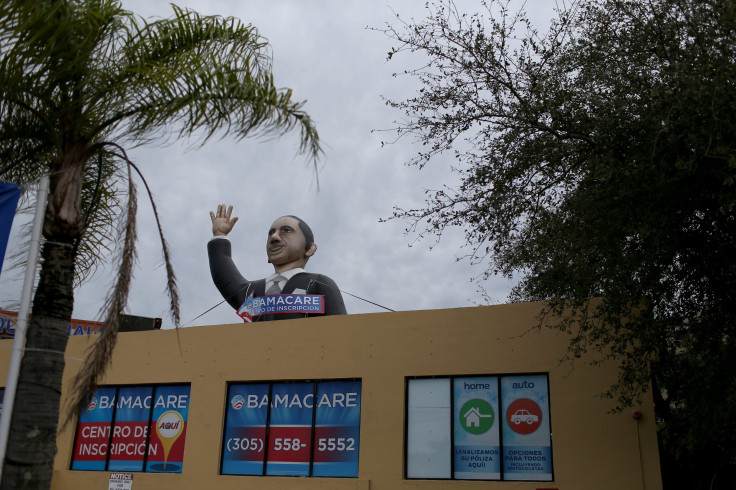Affordable Care Act 2015: More Than 1 Million Qualified Floridians Still Uninsured Under Obamacare, Analysis Finds

More than 1 million people in Florida are eligible for but are not getting health insurance through the Affordable Care Act or Medicaid, an analysis published Tuesday by the Kaiser Family Foundation showed. In 2015, of the 2.788 million Floridians who did not have insurance, 11 percent were qualified for Medicaid and 30 percent were eligible for tax credits to buy health insurance on exchanges created under Obamacare, as the law is nicknamed.
Another 20 percent, or 567,000, fell into the so-called coverage gap, which exists only in the 20 states that opted not to expand their Medicaid programs. The Affordable Care Act initially required states to expand this joint state-federal insurance coverage to low-income adults with incomes up to 138 percent of the federal poverty level, but a Supreme Court decision in 2012 rendered that expansion optional.
Thirty states have chosen to expand Medicaid, but Florida was one of those that did not. Those who fall into the gap are people who earn too much money to qualify for Medicaid in its original version but too little to buy insurance on exchanges created under Obamacare. These exchanges are essentially marketplaces where people who do not get insurance through their employers or the government can shop for coverage. Those who qualify financially get subsidies in the form of tax credits to offset the cost of that coverage.
Thirty-nine percent of Florida's uninsured are qualified for neither Medicaid nor subsidized health insurance, Kaiser's analysis showed. Some had incomes that were too high, others had access to insurance through their jobs and the rest did not qualify due to immigration or citizenship status. Some of those who had access to insurance through their employers are caught in what's called a "family glitch," where employer-sponsored insurance covering the whole family is prohibitively expensive, yet their incomes were still too high to qualify them for Obamacare subsidies.
NEW: State estimates of how many #uninsured could be reached in 3rd #ACA open enrollment http://t.co/BCnNlvaQgV pic.twitter.com/Ne7hf4TXOj
— Kaiser Family Found (@KaiserFamFound) October 13, 2015
Florida has the third-highest number of uninsured people in the United States, after Texas' 4.4 million and California's 3.8 million, according to Kaiser's analysis.
What the analysis showed for Florida was that even under Obamacare, not everyone would be able to get health insurance but they would still need medical care, Rachel Garfield, lead author of the analysis said, the Miami Herald reported.
The analysis was released less than three weeks before the third open enrollment period was slated to begin Nov. 1. The Obama administration has said it will target cities with high numbers of eligible, uninsured people in campaigns to increase enrollment. “We ... believe we can continue to connect people with the coverage they need and further decrease the number of Americans without health insurance,” Health Secretary Sylvia Burwell said in September.
An estimated 32.3 million people in the United States remain uninsured, 9 million fewer than those who were uninsured in 2013, the year a key provision of the Affordable Care Act went into effect. Tuesday's analysis also showed that half of those who are uninsured do not qualify for subsidized health insurance under Obamacare or Medicaid.
© Copyright IBTimes 2025. All rights reserved.






















